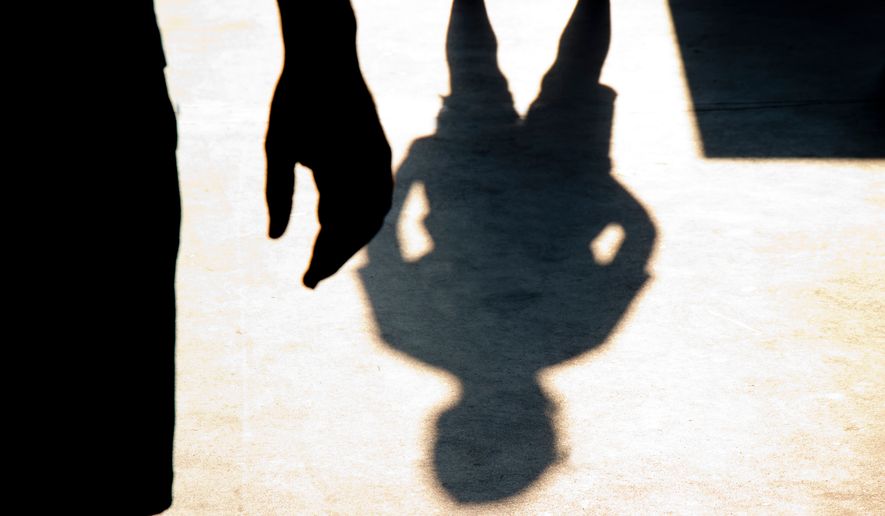OPINION:
Dear Dr. E: I’m the parent of a 16-year-old son and 14-year-old daughter, and one of the things that bothers me most about their peer group is their pessimism. Whether it be the economy, our country, the church, or the environment, it seems they are consumed by fear. Do you have any advice for parents trying to raise their children to be confident leaders rather than following the crowd of their doomsday generation? — WANTING TO BE A GOOD DAD FROM ARKANSAS
Dear Good Dad: The best advice I can give you is to teach your son and daughter to build their faith in the future on the rock of facts rather than the sand of feelings.
The difference between feelings and facts is the difference between hopelessness and hope. It is the difference between faith and fear. Faith is substantial. Paul says, “It is the substance of things hoped for.” True faith is not built on ideological sands of personal feelings. It is anchored deep in the self-evident “substance” of truths that do not move.
True faith knows that it knows. There isn’t a shadow of a doubt that the rock is stable and real. Having a foundation of faith rather than fear ensures that we will stand even when life gets hard. When the crisis comes, we have hope, we are not hopeless, we don’t give up, we dig in, we stand firm. We are resolute in our confidence that the foundation will hold.
Saint Paul goes further when speaking about the complexities of life, the struggles, and the hardships. His words give us the first line of defense when life is hard. He wrote, “We are hard pressed on every side, but we are not crushed; perplexed, but not in despair; persecuted, but not abandoned; struck down, but not destroyed.”
Rather than bemoaning the difficulty, Paul celebrates opportunity. Being “hard pressed” did not change the fact that he refused to be crushed. He welcomed the struggle and was not overcome by it. Paul focused on his destiny and not on despair. He knew iron sharpened iron. He welcomed the sword!
Much of life is hard, but what allows us to overcome difficulty is found in doing the work of digging deeper into the rock of God-given facts. Those who look for the safety and ease of emotional “sand” will eventually crumble. Those who welcome conflict with courage will find growth and success.
We live in a time where many have bought the lie that life is analogous to a vacation rather than a storm. Everything should be easy and comfortable. We think we should be able to lie on the beach and play in the sand. And when something goes wrong, we gripe rather than grow. We act like scared children rather than secure adults.
Growing up means seeing life’s circumstances not as barriers but as steps toward the finish line. Children give up because their confidence is shallow. They run from adversity and storms because their foundation is no deeper than their most recent swing of emotions. Adults stand strong. Their courage is deep. Their foundation is rock-solid. They run into the storm, not away from it.
Paul shouted, “But one thing I do: Forgetting what is behind and straining toward what is ahead, I press on toward the goal to win the prize for which God has called me …”
Henry David Thoreau chimed in and said, “However mean your life is, meet it and live it; do not shun it and call it hard names.”
As a parent, you need to lead by example. Never curse the conflict. Relish it, for it is the obstacles that are ultimately the substance of life. With apologies to Plato, it is not the unexamined life that is not worth living, but the unchallenged one. Such a conflict-free life is delusional. It’s a lie.
Teach your children that temporary afflictions are just that—they are temporary. Though it may seem like an eternity in the moment of the affliction, the struggle will pass, and a new day will dawn. Rather than wallowing in pity during a struggle, rejoice in the opportunity to grow up.
Tell your kids to focus on where they’re going, not what stands in the way. And most important of all, when it comes to the future or anything else in life for that matter, make sure your son and daughter know, as Ben Shapiro says, “the facts don’t care about your feelings.”
If you are seeking guidance in today’s changing world, Higher Ground is there for you. Everett Piper, a Ph.D. and a former university president and radio host, takes your questions in his weekly ’Ask Dr. E’ column. If you have moral or ethical questions for which you’d like an answer, please email askeverett@washingtontimes.com and he may include it in a future column.




Please read our comment policy before commenting.